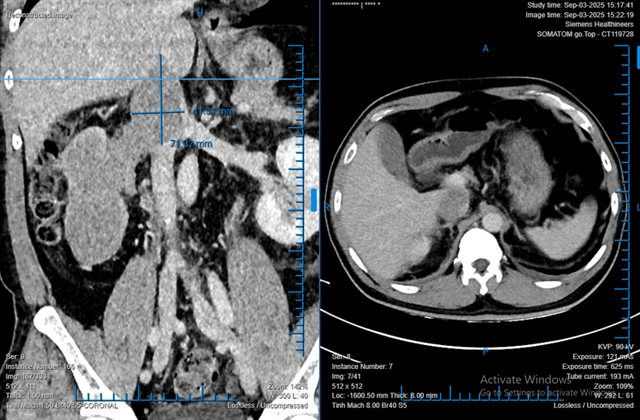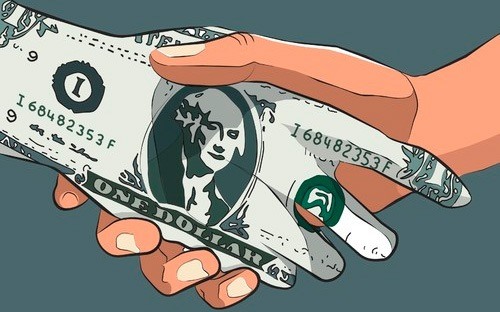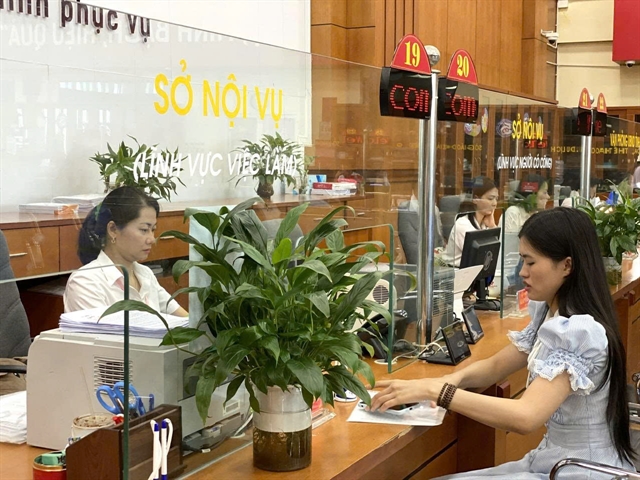 Op-Ed
Op-Ed

The first draft of Việt Nam’s latest anti-corruption law was published in late June by the Government Inspectorate and has been attracting comment and debate from all sectors of society. If all goes according to schedule, the draft will be submitted to the National Assembly in November of this year.
 |
By Brook Horowitz
The first draft of Việt Nam’s latest anti-corruption law was published in late June by the Government Inspectorate and has been attracting comment and debate from all sectors of society. If all goes according to schedule, the draft will be submitted to the National Assembly in November of this year. Final revisions will go to the National Assembly for adoption in May 2017.
This latest revision deals with many of the loopholes left open by the previous 2007 and 2012 versions, especially with regard to law enforcement in the public sector.
However, it also includes for the first time enforcement regimes for the private sector. It introduces sanctions outside the criminal code to handle corruption cases beyond the public sector. Top managers of public companies, credit institutions, investment funds will have to publish their earnings and will be treated under the law as state officials. All enterprises will have to be completely transparent about their ownership. Enterprises will be responsible for developing codes of conduct and internal control mechanisms to prevent corruption. Safeguards and guarantees of anonymity will be provided for whistle-blowers.
This new focus on the private sector brings Việt Nam into line with many countries of the world where anti-corruption legislation is balanced between both the supply side (the company or company representative giving the bribe) and the demand side (the public official soliciting the bribe). It is right that companies – especially the leading companies - should be subject to the same anti-corruption standards as the government.
But herein lies one of the paradoxes for both government and business. The large publicly quoted companies account for only 2-3per cent of the number of registered companies. Just as in many rapidly-developing countries, small- and medium-sized companies (SMEs) account for the vast majority of enterprises and are the driver of the country’s growth. These same enterprises are amongst the most exposed to corruption and the least inclined or able to resist it.
Unlike larger companies, they don’t have an army of compliance officers to keep an eye on their staff, or internal auditors to review each and every transaction. And frankly there’s often not much choice. They don’t have the power of the bigger companies to “just say no” to paying a bribe. Saying no would mean effectively turning their backs on a deal. No bribe, no business. It’s as simple as that.
Indifference, passivity or acquiescence at best, and at worst, full complicity in bribery are a quite understandable reaction on the part of SMEs.
However, a recent survey of SMEs by VCCI revealed the extent of SMEs’ frustration with the status quo. They were quite clear about the root causes, and what the government should do about it: “The Government should be a pioneer in fighting corruption” wrote one respondent.
This was certainly not the voice of passive and down-trodden victims of endemic corruption. Rather it was the voice of an aspiring, upwardly-mobile entrepreneurial class that aspires to running a professional business.
Clearly to take the fight against corruption to the next level depends not just on introducing new rules and regulations, and making sure they are enforced. For a wholesale culture change, the whole of society, needs to be involved. SMEs, impacting the lives and livelihoods of millions of individual entrepreneurs and their families, are a critical component and catalyst of this change.
That’s why VCCI and IBLF Global have focused their latest programme on helping SMEs resist corruption. With the support of the British Embassy in Hanoi and a local team of experts, we have created an on-line anti-corruption toolkit for SMEs and a series of training workshops to go with it.
The training workshops, which are being conducted in Hanoi, HCMC, and 6 cities in the northern provinces, will continue to the end of 2016 - and longer if there is sufficient demand. We have found a high level of enthusiasm from the participants, a real desire to learn more and a commitment to trying out their newly acquired management techniques in their companies.
The online toolkit, “Practical Steps for dealing with Corruption” is being launched in Hanoi on 21st October. It is a first attempt to address the issue of corruption from an SME point of view. It has plenty of useful information about rules and regulations, practical tips and advice about how to resist corruption, pointers about where to get further help and advice. A prominent feature of the toolkit will be both a help desk, run by VCCI, and a “self-help” desk, where SMEs can offer advice to each other online.
Our hope is that the Vietnamese government, foreign governments, Vietnamese companies and multinational investors will encourage SMEs throughout Vietnam to join the training and use the toolkit. In this way, the toolkit will become a focal point for a community of companies wanting to professionalise their operations, reduce costs, and increase their competitiveness and profitability. It will be of immediate benefit for the SMEs themselves, but it will also represent the first steps in a longer-term shift towards a fairer and more equitable society.
Brook Horowitz is CEO of IBLF Global, a London-based NGO dedicated to promoting responsible business standards in G-20 and high-growth markets. The Anti-Corruption Toolkit for SMEs and the schedule of training workshops can be found on https://dean12.org.vn/




